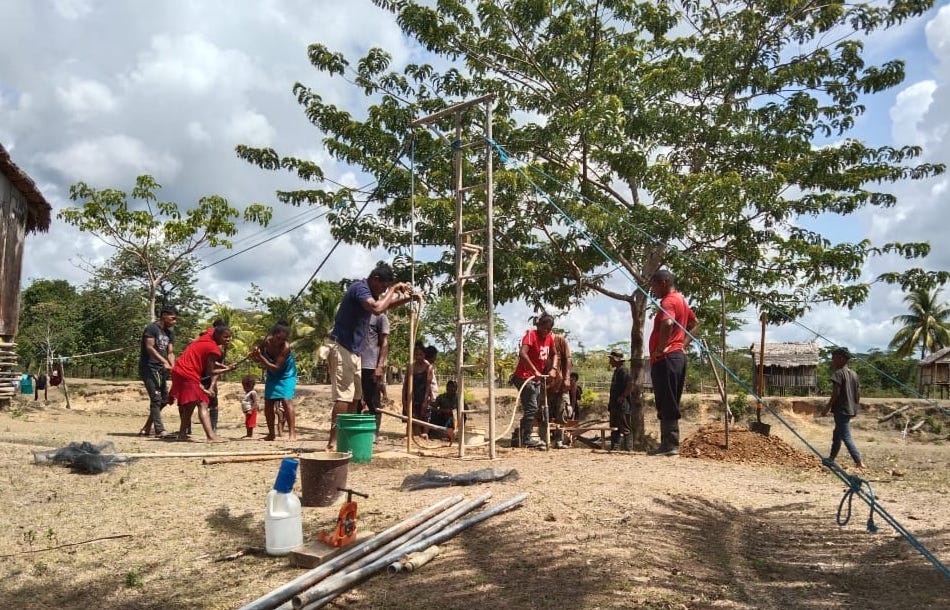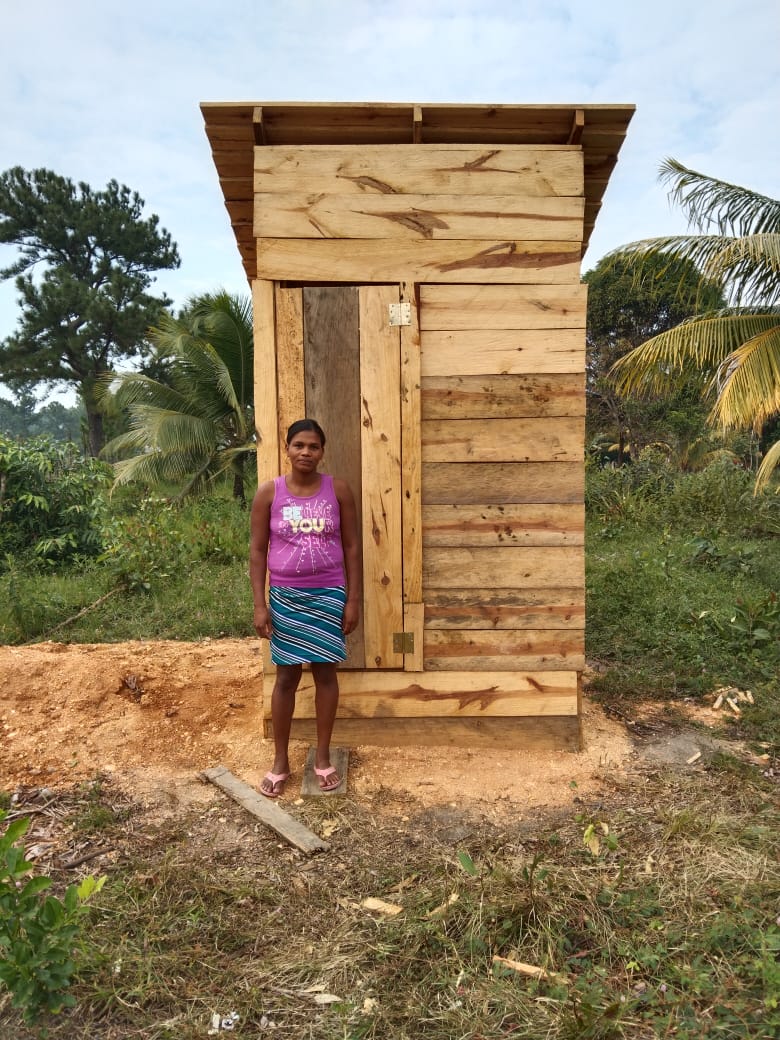Enhancing Access to Water and Sanitation Strengthens Indigenous Resilience in Honduras
La Moskitia, the second-largest wilderness region in Central America, covers over 15,000 square kilometers of southern Honduras. This remote expanse of mountains and plains boasts remarkable biological diversity and supports a population of over 100,000 inhabitants from five indigenous groups: Miskito, Mayangna, Garifuna, Pech, and Tawakha. Though Indigenous Territorial Councils (ITCs) in Honduras have recently been transferred the land rights through which they govern the land they inhabit, illegal colonization, drug smuggling, and climate change pose significant challenges. As a result, these communities face poverty, food shortages, chronic malnutrition, and high vulnerability.
In July 2020, GOPA Worldwide Consultants initiated a collaboration with GOAL and with funding from the German Corporation for International Cooperation (GIZ) aimed at strengthening ITCs’ organizational skills and improving local populations’ food sovereignty and resilience in the Honduran Moskitia region. The project, named Pana Pana, was successfully completed in December 2023. While it prioritized establishing food security and improving local communities’ capacity for self-governance, a secondary focus of water, sanitation and hygiene (WASH) infrastructure was added shortly after its initiation.
The extreme remoteness of the Moskitia region, where most villages can only be accessed by boat or plane, has led to a lack of state provision for basic needs such as water and sanitation. The limited WASH infrastructure that exists stems solely from humanitarian aid. This lack in robust infrastructure and in ongoing programs that train local communities in sustainable water and waste management has led to a surge in gastrointestinal diseases and diarrhea, particularly among children.
Responding to this urgent need, GOPA Worldwide Consultants directed its efforts towards solutions tailored to the region's unique challenges and by placing the indigenous communities at the center of the project. Through several consultations with the local population, the project trained a team of nearly two dozen men and women from surrounding communities to drill over 140 wells – utilizing a simple and locally-adapted technique – and install hand pumps that users can operate independently. The technology used for drilling and maintaining the wells was low-cost (approximately $500-700 USD per well to serve 10 families) and utilized materials and supplies that are readily available in the Mosquitia region. The project team also custom-designed and built locally appropriate latrines for homes and schools throughout the region.

Image: Community members drilling a well to install a hand water pump (credit: GOPA Worldwide Consultants)
This work was accompanied by efforts to promote best practices – including good hygiene, water treatment, and waste management – throughout the surrounding communities. These involved door-to-door visits and theater performances put on by students from the local schools, in partnership with the Secretary of Education.
The WASH component of Pana Pana not only gave access to clean, safe drinking water to over 1,300 families, but also provided opportunities for ITCs to complete trainings, gain professional skills, receive technical and financial support, and implement their vision of empowered self-management in accordance with their values. Through this project, GOPA Worldwide Consultants also helped shift gender roles, lessening the previously existing burden of water collection for women and children.
“La Moskitia is a very fragile social and political environment, with lots of violence and corruption,” says Annette Heinrich, Senior Project Manager at GOPA Worldwide Consultants. “But since we worked with experts who speak the language and understand the complexities of the local context, we were able to build trust between the different communities and the territorial council presidents, and then focus on the issue of governance.” As a result, local leaders are held accountable for the implementation and sustainability of the WASH infrastructure.

Image: A completed latrine in a community in Moskitia (credit: GOPA Worldwide Consultants)
In contexts where indigenous populations are living in extreme poverty and have limited resources and decision-making power, a project like Pana Pana can not only improve their livelihoods but can also set a new precedent for effective collaboration within governance mechanisms between indigenous structures and state actors. In turn, these new collaborative mechanisms will serve as a community multipliers, making it easier to mobilize resources and achieve common goals for future projects, regardless of their focus.
